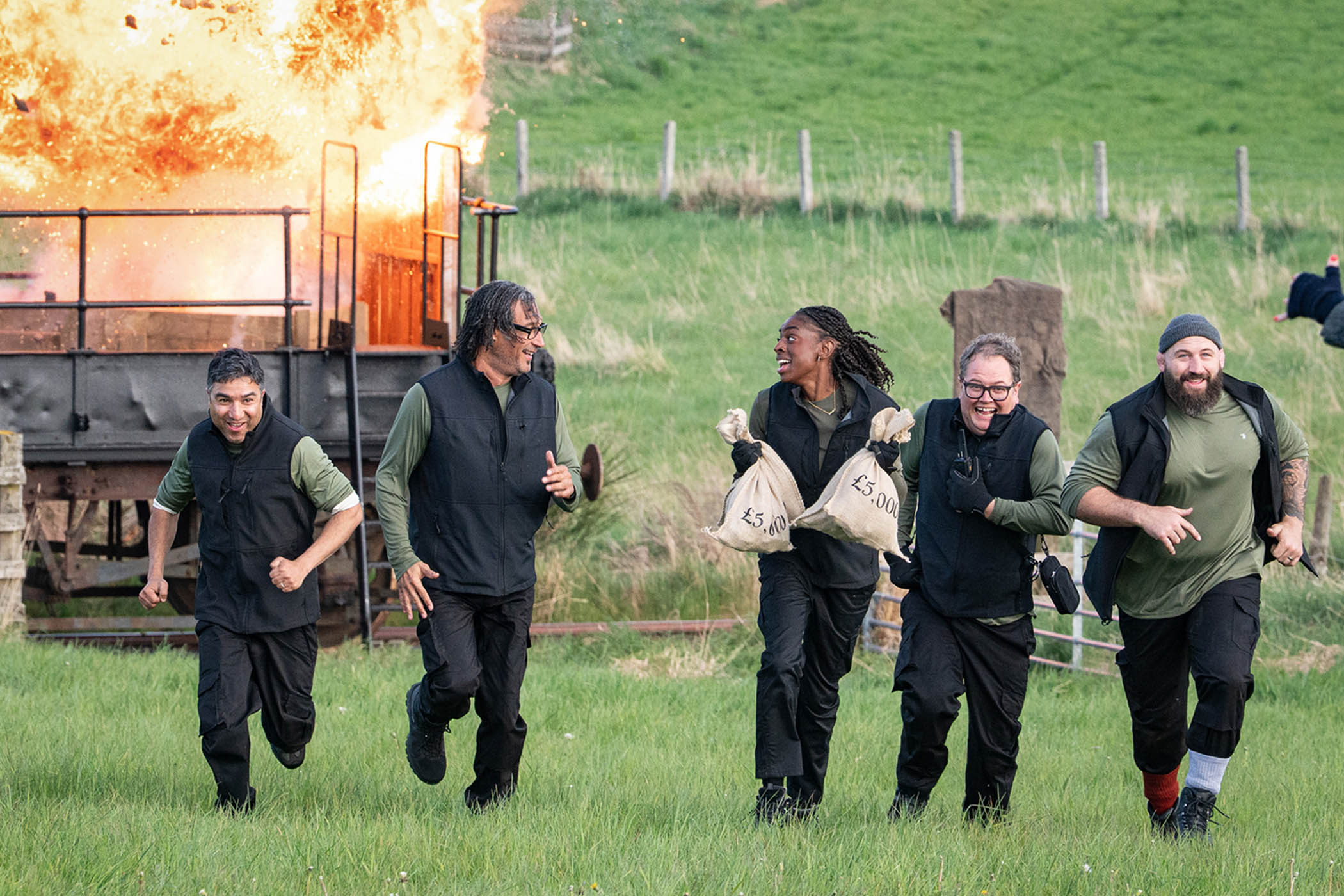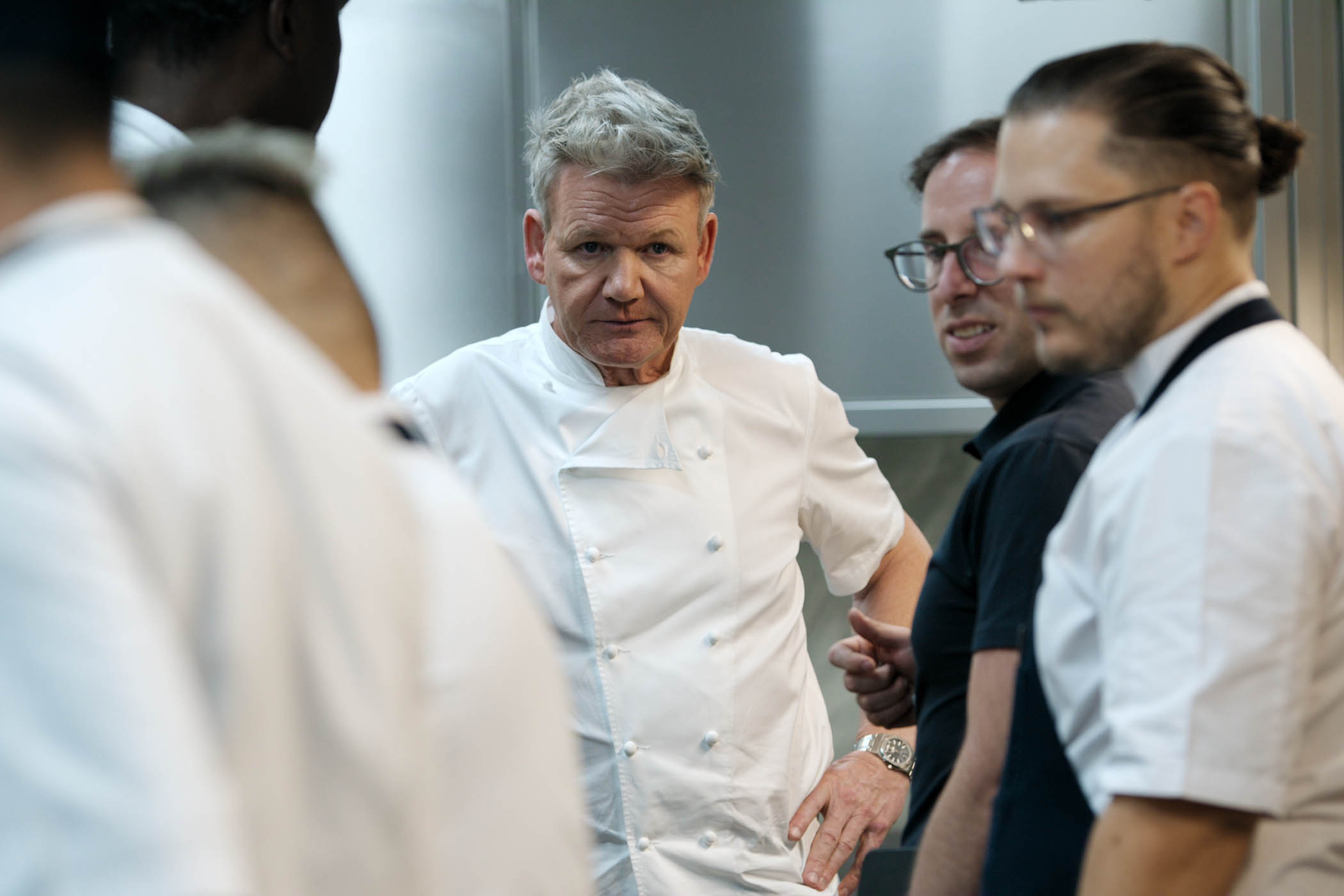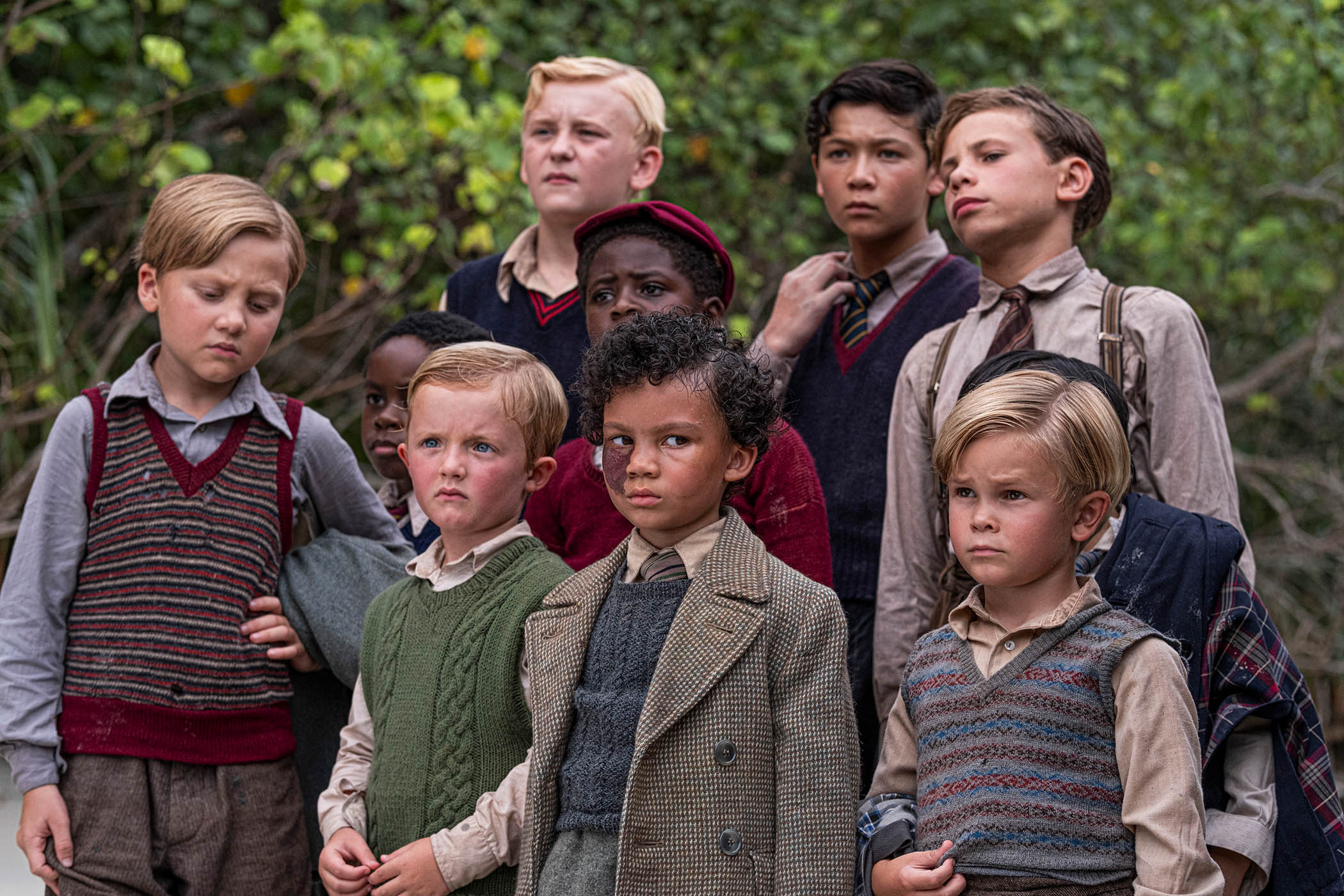With the spit and crackle of dancing green flames it was done. The remaining Faithful in the final of The Celebrity Traitors – actor Nick Mohammed and historian David Olusoga – surmised they had ousted all the Traitors and it was time to throw their “endgame” pouches into the firepit.
“You fools!” thought millions of viewers in unison (predictions of viewing figures range between 14-15m). Sure enough – spoiler klaxon – comedian and presenter Alan Carr, who had convinced them that he too was a Faithful, finally revealed he had been a Traitor all along. The Keyser Söze of The Celebrity Traitors stopped stumbling around, grinning, giggling and deflecting, and told the truth: “I am and have always been a Traitor.” He then broke down in tears – “It’s been tearing me apart!” – and Olusoga and Mohammed rushed forwards to reassure and comfort him. Celebrities are gonna celebrity after all.
What has this show done to us as a nation? Over the nine-episode run, it’s as if we’ve been seized by a collective madness. The Celebrity Traitors is the most watched show of the year so far: the first four episodes produced an average audience of 12.6m viewers. In terms of viewing figures alone, it’s tantamount to the TV World Cup. If there were any remaining doubts that it is a bona fide phenomenon, they vanished when a streaming blunder resulted in the final airing early in Canada, and the glitch was reported with the solemnity of an outbreak of war. Similarly, efforts to stop the result leaking felt like pure Blitz spirit. You almost expected Keir Starmer to appear outside No 10: “Together, as a nation, we will stop these spoilers.”
The final was a carnival of larks and skullduggery. A mission aboard the “Traitors Express” steam train culminated in a camp action movie explosion and a final prize pot of £87,500 for charity. (Carr was playing for Neuroblastoma UK, a children’s cancer charity.) If there was a tad too much mwah mwah-ing soppiness about being great friends – even former England rugby player Joe Marler deployed the dreaded j-word (“journey”) – that’s par for the course in a final.
Crucially, it looked as if the Traitors, Carr and singer Cat Burns, would be doomed by Marler’s ploy: to lull them into a false sense of security – pretending to have his eye on Olusoga – then pull the rug at the last moment. While the plan worked in dispatching Burns at the final roundtable, Marler was felled at the firepit by his own Faithful allies. A bow-tied Mohammed was hobbled by over-thinking; Olusoga continued his unbroken run of broaching labyrinthine and 100 per cent incorrect theories.
We have to be strict: the celebrity Faithful were terrible, the Eddie the Eagles of the UK Traitor franchise, which has been running since 2022. They took an unprecedented and frankly pitiful seven episodes to banish their first Traitor (Jonathan Ross) and were headless chickens until the end.
Nor was this the greatest-ever Traitors climax: that title belongs to the second series finale when popular Traitor Harry Clark won by hoodwinking his close Faithful friend Mollie Pearce, who was genuinely devastated. That result went beyond great TV: it was a teaching moment about the machinations of betrayal and the fragility of trust.
What The Celebrity Traitors delivered – in cloak-wafting, turret-lurking spades – was a much-needed good time on a national scale. Who’d have thought that “Celia Imrie’s fart” and “Tom Daley’s side-eye” would be among the most-used phrases of 2025.
It also delivered some home truths to the nation: that Britons don’t mind being lied to, so long as we’re simultaneously being entertained. Less worryingly is that, at a time of discord, we’re overjoyed to come together and ... just be playful for once.
There’s another thing the success of the celebrity version of this clever gameshow proved: with a new series scheduled for January, and the one after that already being cast, right now, The Traitors is too big to fail.
Newsletters
Choose the newsletters you want to receive
View more
For information about how The Observer protects your data, read our Privacy Policy
Photograph by Euan Cherry/BBC/Studio Lambert



